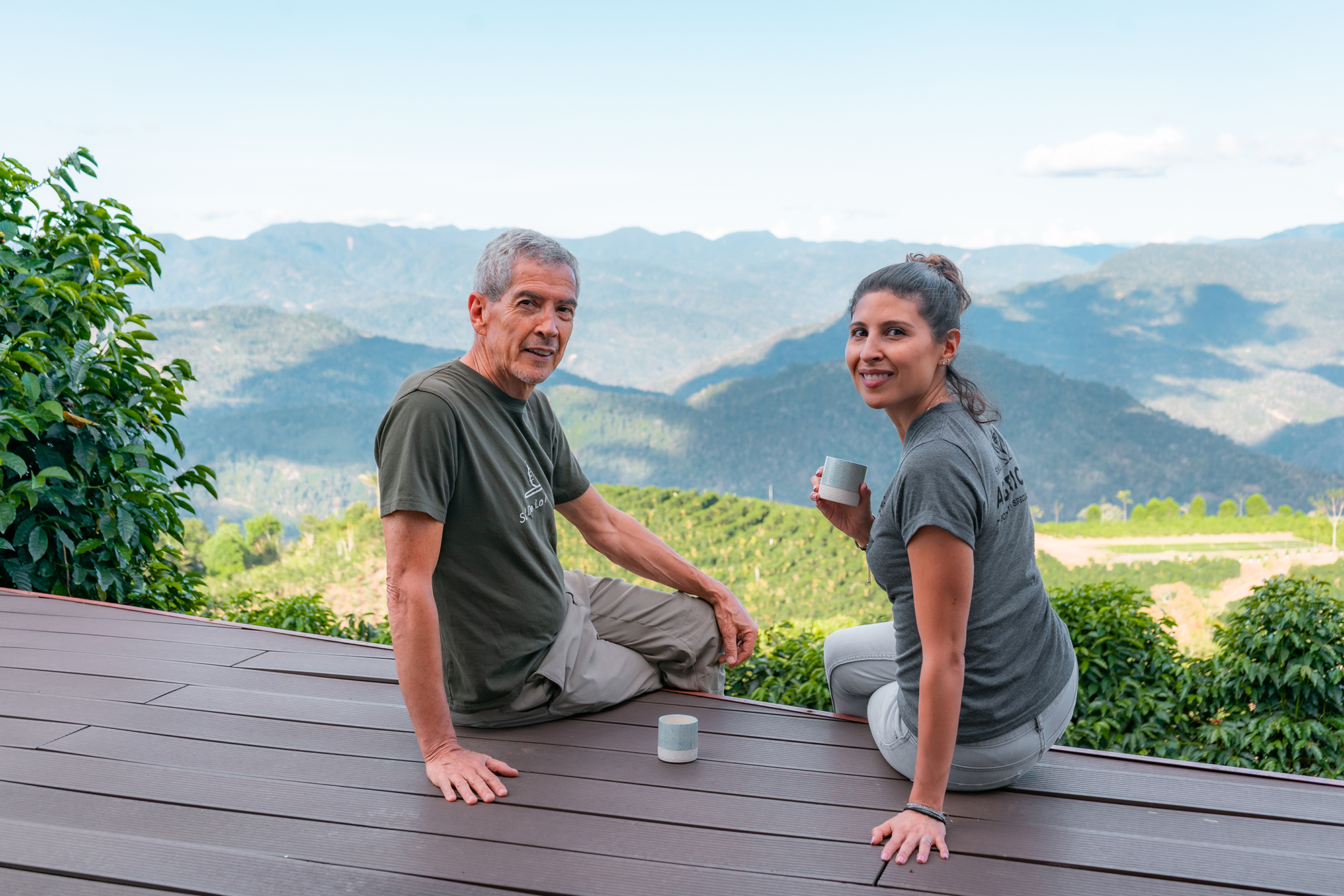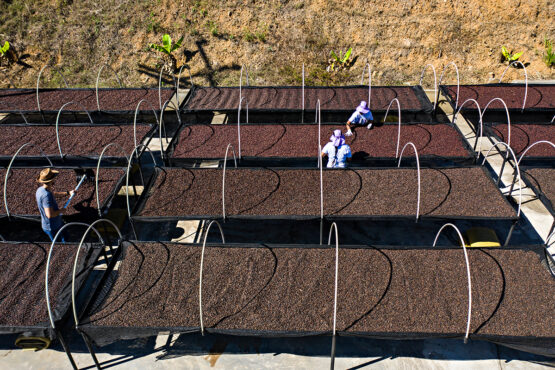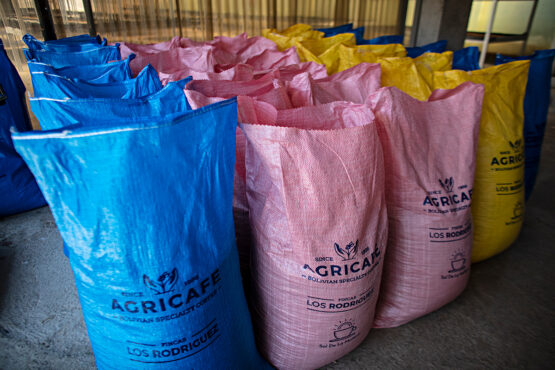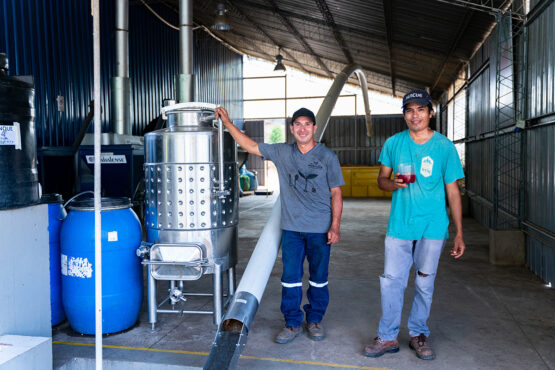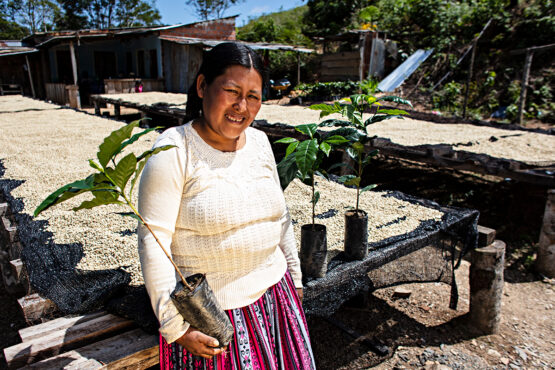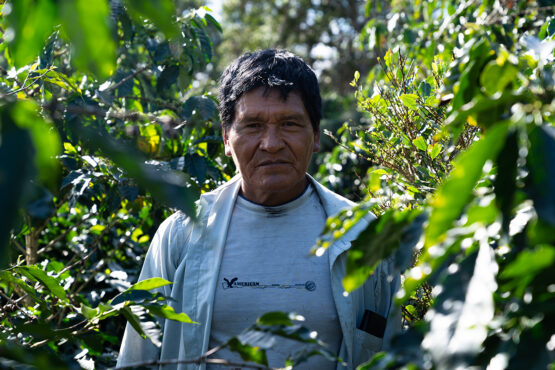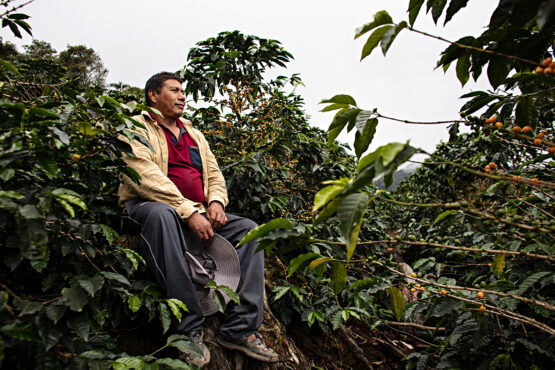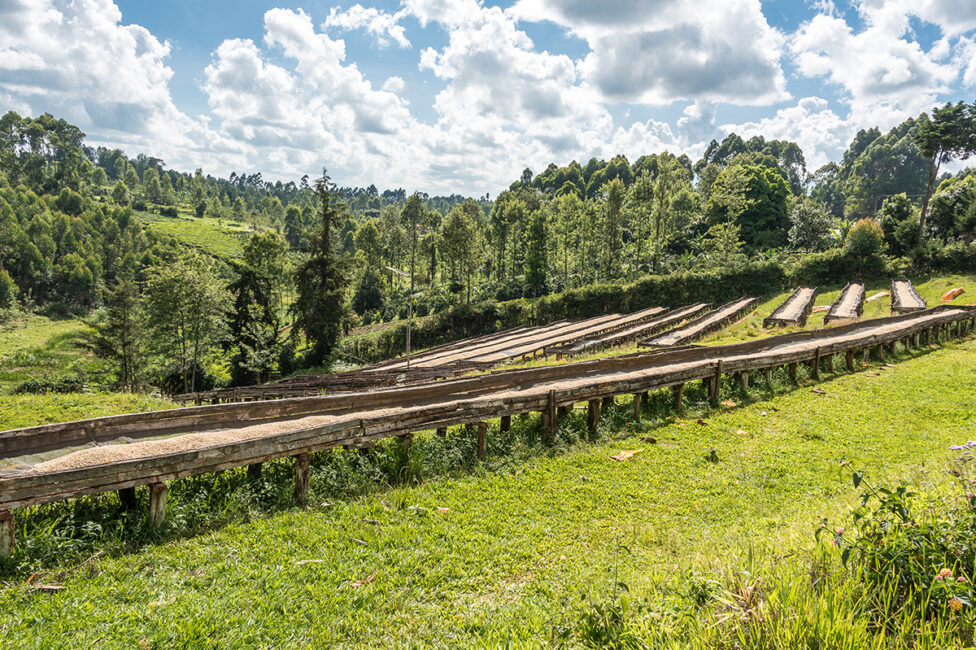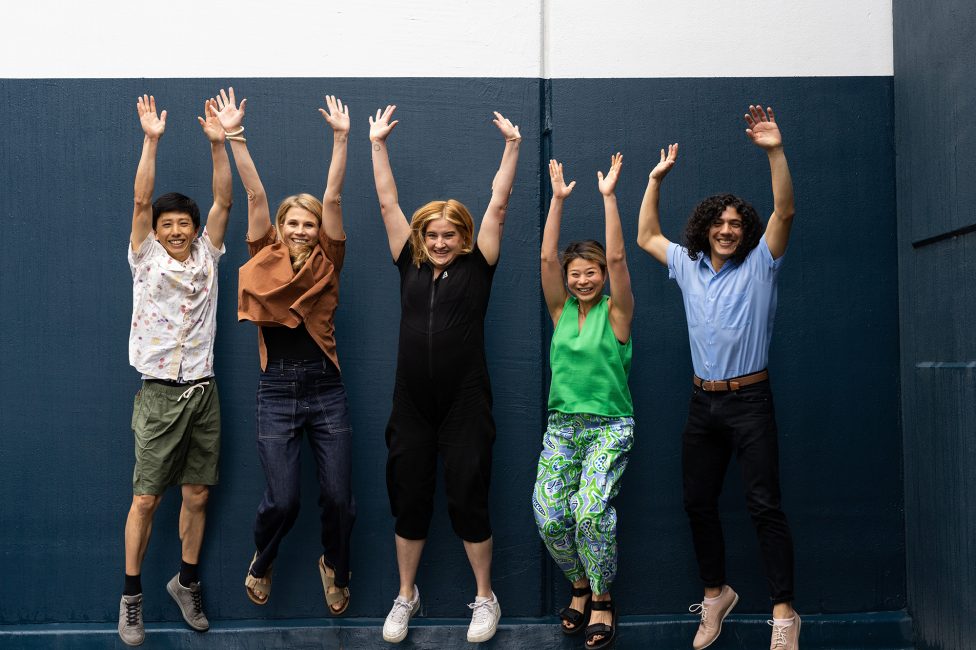Bolivia End-of-Harvest Q&A
Published 1 February 2022
Get excited! Our Bolivian offerings have just landed and will be heading out to roasters around the country in the next few weeks.
The arrival of our Bolivian shipment is always an exciting time for MCM! We love celebrating these special coffees, and the incredible people behind them. While we couldn’t visit this year, we have kept up to date on the 2021-22 season through close communication with the Rodriguez family, of Agricafé and Fincas Los Rodriguez. We recently caught up with Daniela Rodriguez (pictured above, with her father, Pedro), who looks after the family’s marketing, communication and logistics, to learn more about the victories and challenges of the harvest.
Despite still recovering from a recent Covid infection, Daniela was gracious enough to take our call! Over an hour-long chat, she explained the direct and indirect effects the pandemic and the ongoing international shipping crisis have had on the season, and shared details on the family’s exciting new approach to fermentation and coffee processing.
MCM: Now that the dust has begun to settle, how would you say this year’s harvest went?
Daniela: I would say it was a ‘different’ year. We weren’t expecting it. We thought this was going to be a normal year, but in the end it wasn’t. We were very short on staff, even more so than in 2020!
How did Covid-related safety measures affect workflow at the farms?
This year we’ve had more travel restrictions in place, [including strict curfews] which meant we were not able to extend our operating hours during the peak of the harvest. In the past, we’ve been able to start early and work until late, but we weren’t able to this year. We basically only worked the hours we were allowed to.
How did Covid-related safety measures affect workflow at the mills?
At the mills, we decided to only hire seasonal workers who have been with us for many years, as we knew they would be the most careful when following all the new measures. This also meant 100% of our staff were vaccinated, which gave everyone more peace of mind.
When it comes to exports, the effects of these restrictions were very obvious. We know how many bags or boxes can be packed per hour, so we knew exactly how much work was missed every hour we lost.
Has the international shipping crisis resulted in many delays?
This year most major shipping lines weren’t even picking up the phone for us! When we did get through to someone, we were told they were focusing on customers who do business with them year-round, rather than ones like us, who only work with them for a few months each year.
This limited the number of shipping lines we could work with. We would have to book a month, or month and a half ahead of time, just to secure a spot. Prices would be set in advance, and then they would increase closer to the booking date. If we missed one of these bookings, we would be fined. But because we’re dealing with coffees that require a lot of care during the picking and processing, we would sometimes get delayed and miss those bookings anyway.
That sounds so stressful! Has it begun to improve, or is the Omicron wave making it worse?
It’s very stressful! Right now we’re hearing of cargo trucks carrying our coffees being stuck at borders for up to 6 days. Chilean officials are requiring all drivers to get tested at the border, which has resulted in absolute chaos. Drivers go on these jobs knowing that if they test positive, they will get held up at the border until they test negative. We’ve heard of weeks where, out of 100 truck drivers that try to cross the border, 80 of them test positive. We’ve had trucks stuck in line at the border, just waiting to get tested. We’ve missed 5 bookings like this.
Covid is definitely still affecting us. Shipping prices are crazy, tariffs keep going up, and often ships get delayed for up to two, three weeks at a time, as they also get held up at ports around the world for similar reasons. And being a landlocked country only makes things more challenging. I don’t think we would be spending so much time waiting at the border with Chile if we were in the same country.
Would you say the situation has resulted in other unexpected challenges?
Yes. We have been facing shortages of the bags used to pack green coffee, both EcoTact and GrainPro. We’re now having to airfreight them, doubling or tripling their cost. The same applies to the cardboard used for our boxes. Because of the shipping delays experienced around the world, most of our customers are requesting all coffee be vacpacked and boxed, which makes sense, but it has increased the amount of material used this year.
The cost of fertiliser has also doubled, at a minimum. This is because the price of the actual chemicals has increased, and the cost of importing it has also gone up. We are essentially the only company importing fertilisers used in coffee plantations, and we have to do it via the ports in Chile or Peru, further increasing the cost.
Has the volatile C-market created much uncertainty in Bolivia, in the same way it has in Brazil and Colombia?
No, not directly. The market price of coffee in Bolivia is based on the supply and demand of the local market in Caranavi. They may use the C-market price as a reference, but it doesn’t set our prices. Bolivian coffee is in high demand, and farmers know that the high cost of production, and low productivity of the farms have to be compensated in the final price they receive.
Did you get many visitors this year?
Many visitors? More like, a handful visitors – period. It made us really happy to see people beginning to feel comfortable coming all this way. When people did visit, it was during a quiet period in terms of Covid cases, and the country was in a good place with vaccination rates. For us, it’s really important to get visitors, as we then get to show them everything we’ve been doing, so we hope more people can come in 2022. Obviously, we’ll be keeping an eye on the Covid situation, and will advise people depending on how safe it is to visit.
We’re so excited the coffees are finally here! How would you say the quality of this year’s harvest compares to past crops?
Well, we think every year is better than the last! We’re always working to improve. This year we’ve started using fermentation tanks at our mills, so things have been different. As producers we feel the quality has improved because of the controlled fermentation. Coffees are cleaner and more transparent, and the flavours in the cup are more clearly defined. That has all been done this year.
This is the first time that we have processed 100% of the Fincas Los Rodríguez lots like this. We are really excited about where this change will take us, which is why we are already planning more surprises and innovations for the processing and drying of the 2022 crop!
We’re loving the coffees too! What inspired this approach?
This approach was inspired by the wine industry, which we see as a reference. It’s an industry with a longer legacy, that has used technology to better understand their product and ensure good quality isn’t just a coincidence.
Fermenting coffee like this gives us more control of the process and allows us to put better systems in place for future harvests. We can reduce many of the variables at play by keeping good records. We can now fine tune our processing methods, which is what we were hoping to do. This harvest we’ve gathered heaps of information on the processing of every lot. We can now continue to cup and study the coffees and learn what we need to do to replicate results next year.
We’ve used both stainless steel and polyethylene tanks, and we now need to learn how much of a difference they have on quality. Stainless steel tanks are hugely expensive, and our aim is to make this method accessible to all the small producers we work with.
Quality is obviously up then, but how did your yields fare this year?
This year, volumes are lower than the last two for us. Production in Samaipata was very small. The region of Taitiplaya, which is really important to us, only reached 60% of what we had initially estimated. This was a huge surprise to us, as it’s the first time we face a situation like this. On the plus side, Caranavi’s production went up this year and that has helped us make up for the losses experienced elsewhere.
Finally, congratulations on the new coffee shop you opened at the end of last year! We love hearing about new projects, could you tell us a bit more about it?
Thank you! In Bolivia, we sell our coffee under the brand Café Buena Vista. In 2019, we decided to open our first shop in Santa Cruz: Buena Vista Store & Lab. Here, we sell coffee beans and provide coffee workshops and training sessions. During the pandemic, the store helped us consolidate the Agricafe and Buena Vista brands, as more people began drinking coffee from home and we began offering a delivery service. People were very happy to drink Bolivian coffee, as many are only just beginning to learn about its quality.
As Agricafe, we have always focused on exporting, but the shop gave us the opportunity to show people that we also produce coffee, that we have a lot of beneficial programs in place, and that Bolivia has an important place in the world of specialty coffee. A couple of months ago we opened our second shop in La Paz. It took a bit of running around to get it set up, but it has given us the opportunity to teach people about the way we roast coffee, the different regions we work in, and the different varieties we grow. For years, people have been lining up at Starbucks or Juan Valdés shops, because even though extraordinary coffee is available here, they’ve never been able to appreciate it for what it is. So it’s been really important to us to teach people about Bolivian coffee!
